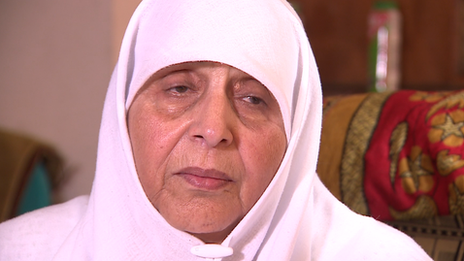Non-EU migrants cross Hungary's 'wide open' border
- Published
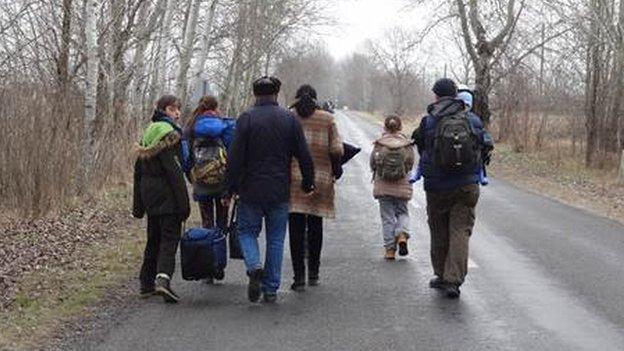
They come in dribs and drabs, in small groups and large, at all hours of the day and night, but especially at dawn and dusk.
They are among the growing number of illegal migrants crossing from Serbia into Hungary.
Hungarian police registered 10,000 people illegally going over the border in January alone. Police sources say privately that they only find about 20% per cent - the others just disappear through the woods on their way to Austria and Germany.
In Asotthalom, the border village in Hungary where most cross, the migrants trudge through the woodlands.
"We can't lose more citizens" - Kosovo's president is concerned by the amount of people emigrating
They ford the border ditch with tree trunks, don't like to be photographed, and are reluctant to talk to reporters. At best you can walk along beside them, in search of someone who speaks a few words of English.
Many carry small children. All are pale and determined. "Germania" they mutter, when you ask where they are going. Or "Deutschland".
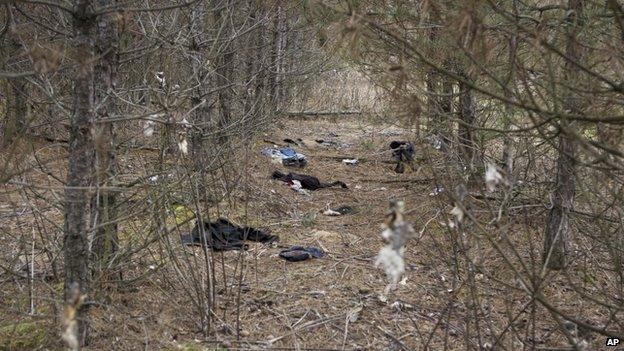
Clothes left behind by illegal immigrants are strewn in a forest near Asotthalom
Almost all are Kosovo Albanians, in their 20s and 30s, but there are also many small children, some only a few weeks old.
They remind me of the hundreds and thousands of their compatriots who fled through the snows of the Dinaric Alps into Albania in the winter of 1998-9. Then they were fleeing the Serbian military. Now they are trying to escape what they call the economic catastrophe of their own country. They also tell the names of the towns they left behind: Mitrovica, Peje, Vushtrri, Gjilan.
"It started last summer as several dozen a day. Now it is several thousand a day," says Laszlo Torockai, mayor of Asotthalom, a village of 4,000 people.
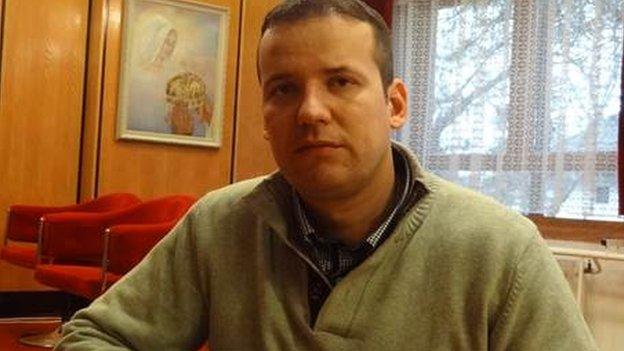
Laszlo Torockai, mayor of Asotthalom, wants a fence along the border
"We sympathise with those fleeing war zones - the Syrians and Iraqis - but less so with those fleeing poverty. Many have smart phones and follow their progress by GPS. Few of my constituents, whose doors they knock on in the middle of the night, can afford phones like those.
"I cannot understand why in mid-winter they set out to walk tens of kilometres in freezing conditions. Every week we have to call the ambulances to fight for the lives of babies with hypothermia."
No border guards
The constant barking of dogs keeps locals, many of whom live in outlying farmsteads, awake at night. Reactions vary. Some feed the weary, others ignore the knocks on the door, or call the mayor's office if people climb the fences into their yards.
Hungary has no border guards, as such, since the service was merged into the police force.
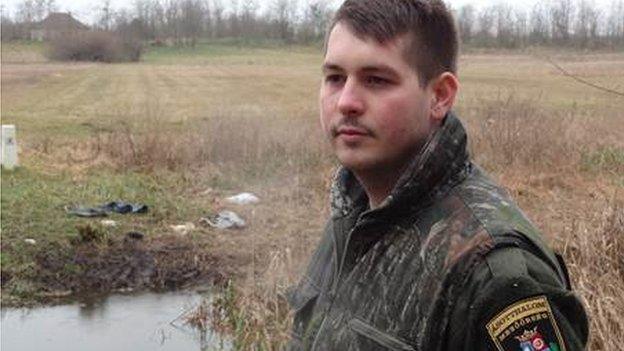
Barnabas Heredi is one of just three field rangers patrolling the border in Asotthalom
Mr Torockai has three field rangers, in uniforms, with jeeps, and 18 other volunteers for his neighbourhood watch. They respond to calls from the public, but can do little more than direct the migrants towards the nearest town.
"The police are little more than a taxi service. They take them to the refugee centre in Szeged, fingerprint them, then let them go, to continue their journeys," says the mayor.
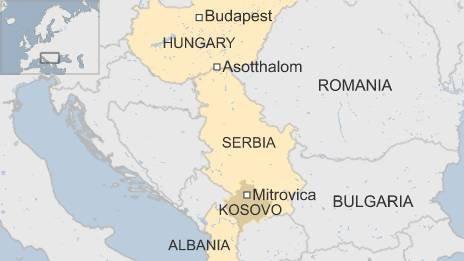
Drita is 23, from Mitrovica. He's going with his brother to Germany, he says.
"The mafia controls everything in Mitrovica," he says. He's had enough, quit his studies, and wants a new life. He wants to send money home, he says, to his mother and younger brothers.
Arafat is 37, carrying his seven-month-old son. Three other children - aged 11, 10, and seven - stride ahead along the roadside, while his wife pushes a two-year-old in a pram. Arafat's from Vushtrri, and has no profession, he says, "but I can do anything, any kind of work".
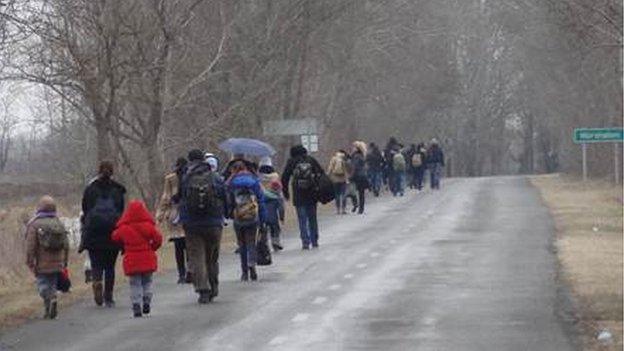
The reason for leaving now, according to many of the migrants, is an easing of the travel restrictions, which used to prevent them leaving Kosovo, and travelling across Serbia.
Once they are in Hungary, they are inside the EU's Schengen zone, where passport-free travel means it is easier for migrants to move further west.
In the litter beside the open border I find many papers torn up in the grass - their permits for crossing Serbia.
"There is increasing debate in Europe about the links between unrestricted migration and terrorism," says the mayor, Laszlo Toroczkai.
"This border is wide open, you could bring in guns, rocket launchers, even a tank, and no-one would notice."
His solution would be a fence, with night vision cameras, and a proper border-control service. The Hungarian parliament is due to debate this, and other suggestions, in the coming weeks.
- Published13 October 2014
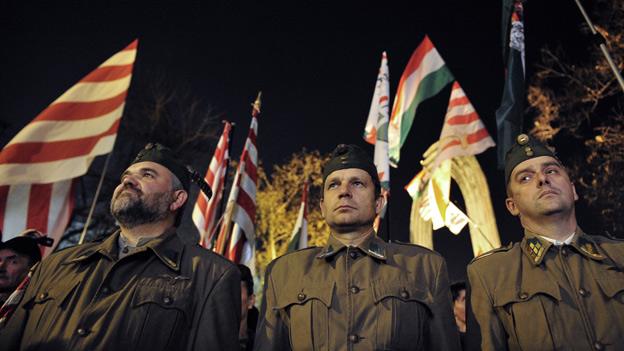
- Published19 December 2014
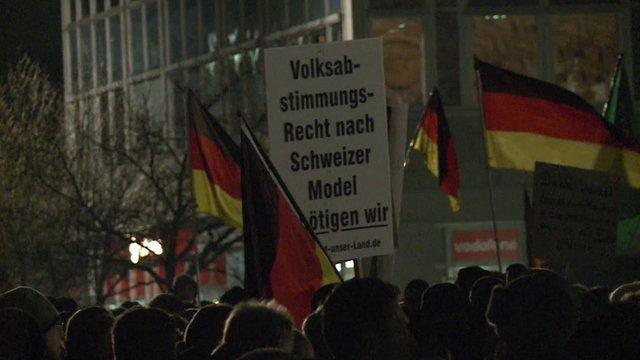
- Published29 October 2014
